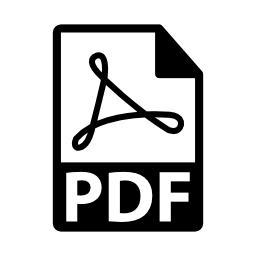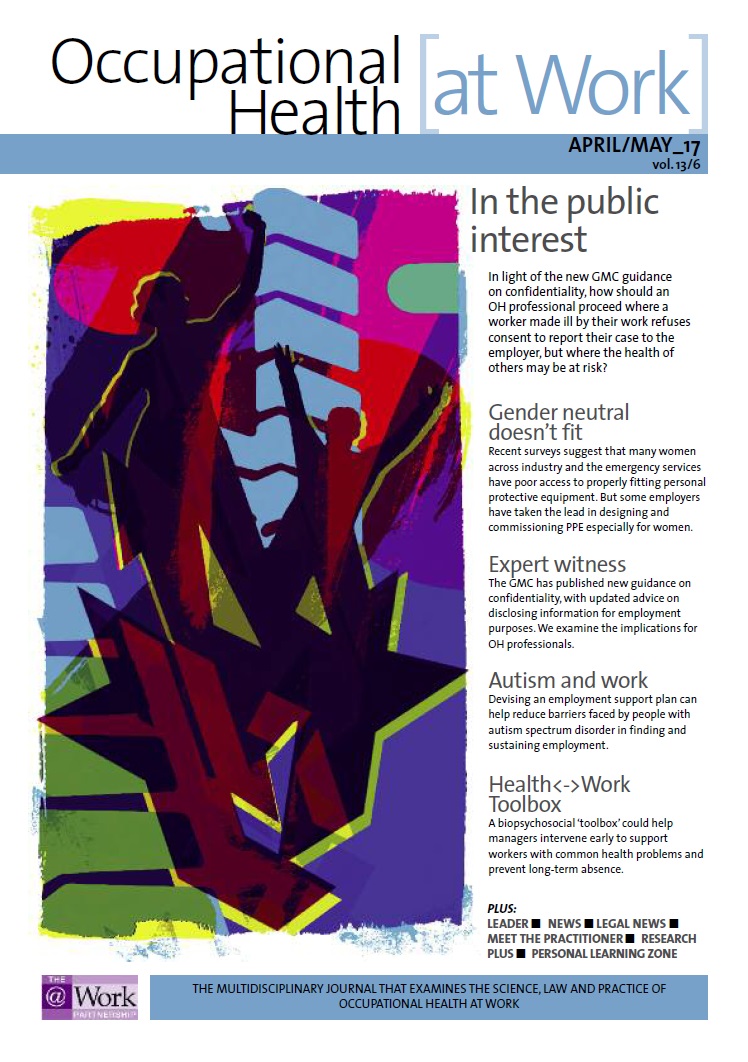April/May 2017 (vol. 13/6)
ContentsFeaturesNewsLegal
NewsResearch DigestResearch PlusCPD
 Personal Learning Zone in this issue
Personal Learning Zone in this issue
Summary:
FEATURED ARTICLES
This issue of Occupational Health [at Work] features two Personal Learning Zone (PLZ) articles recommended for continuing professional development (CPD). The assignment questions, the ‘personal learning statement’ and ‘Certificate of engagement’ are available to subscribers at ohaw.co/AWPcpd. These will also be stored in your password-protected PLZ. The PLZ will help you document your own CPD. Occupational health physicians and nurses, occupational hygienists and other professionals can use the resource in support of their specialism’s revalidation or CPD requirements.
Pages 18–20. OH confidential. Our first featured PLZ article considers the impact on OH practice of the GMC’s new Confidentiality guidance, and the explanatory statement on disclosing information for employment purposes. It includes advice on the consent process for disclosing employee records, and disclosing in the public interest.
Pages 25–28. Releasing hidden talent. Our second featured PLZ article considers how OH professionals can provide support for employees with autism spectrum disorder through the development of an employment support plan. The plan can empower the individual and help the employer implement reasonable adjustments.
ADDITIONAL CPD
The following articles, news and research items are suggested reading for CPD and professional revalidation. Subscribers can complete their online Personal Learning Zone CPD record at ohaw.co/AWPcpd
Pages 12–14. An Employment Appeal Tribunal decision demonstrates that whether or not a person qualifies as disabled under the Equality Act 2010 (EqA) depends very much on the nature of their impairment – in this case further medical evidence would be needed to determine if the claimant’s diabetes met the definition of a ‘progressive’ condition.
Pages 21–24. Under RIDDOR, employers must report specified occupational diseases to the HSE if they have received written notification from a medical practitioner. RIDDOR does not require a doctor to notify an occupational disease – but there may be an ethical duty. The GMC’s new Confidentiality guidance now acknowledges that it may be appropriate to disclose information about a patient without consent if ‘conditions at work are unsafe’.
Pages 32–35. UK and US research reveals that women in many industries are often concerned that the personal protective equipment supplied to them has not been designed with women in mind.
Pages 36–37. A research study has demonstrated that office workers can burn off a few extra calories by using sit–stand desks. Further analysis, however, puts the public health relevance of the finding into question.
Pages 37–38. Though recently outlawed in the UK, an understanding of novel psychoactive substances – so called legal-highs – and their effects is recommended for OH professionals advising younger workers and their employers.
Author: The At Work Partnership Ltd
Occupational Health at Work April/May 2017 (vol. 13/6) pp43



